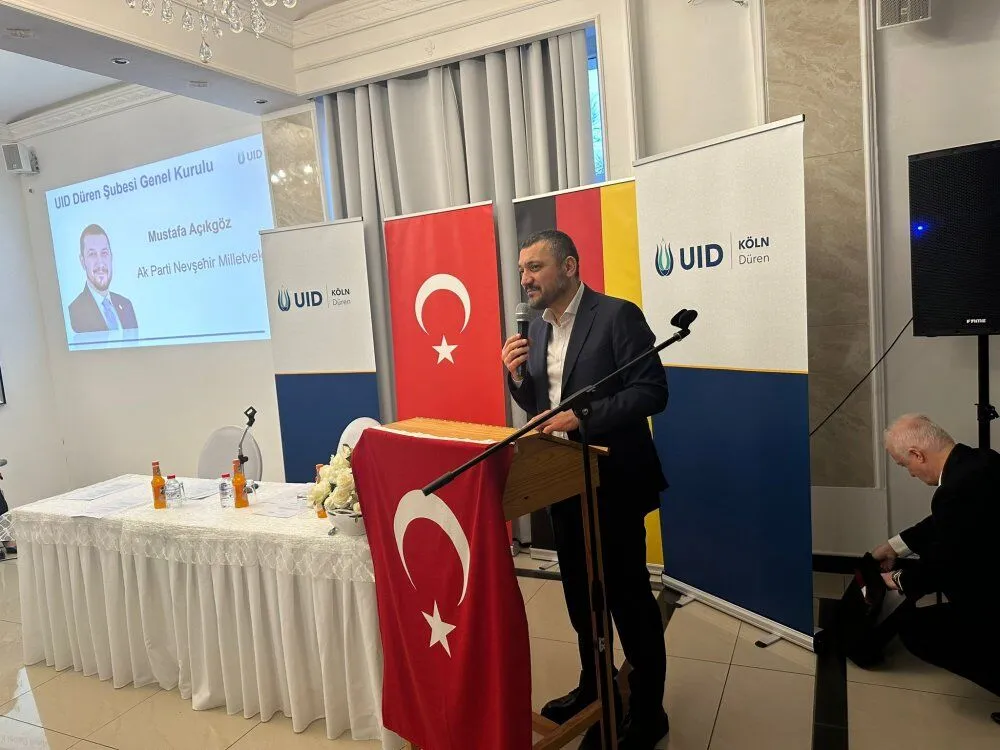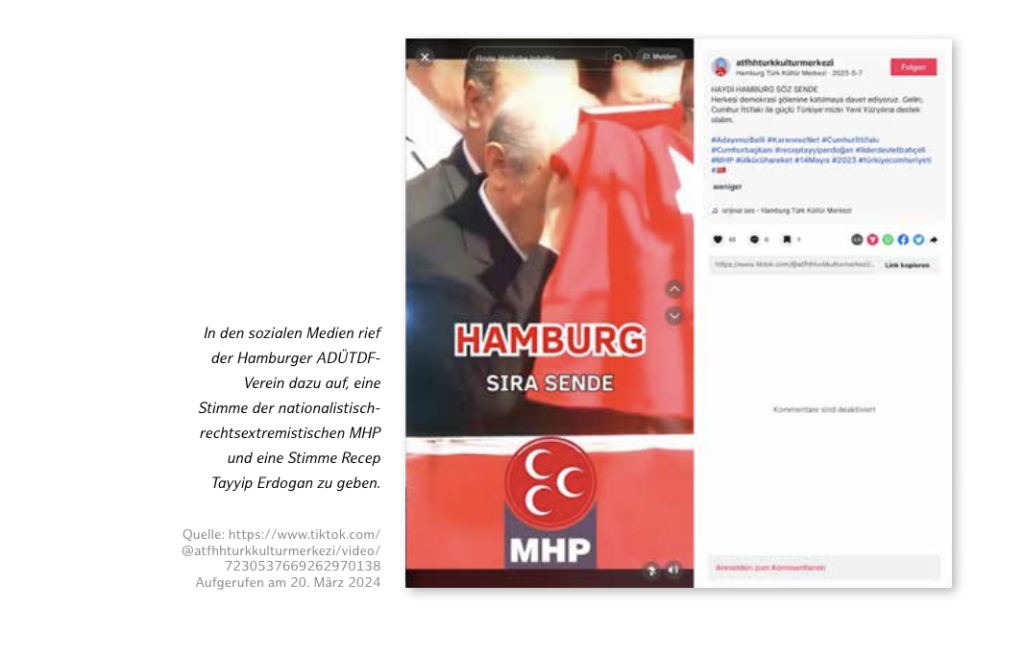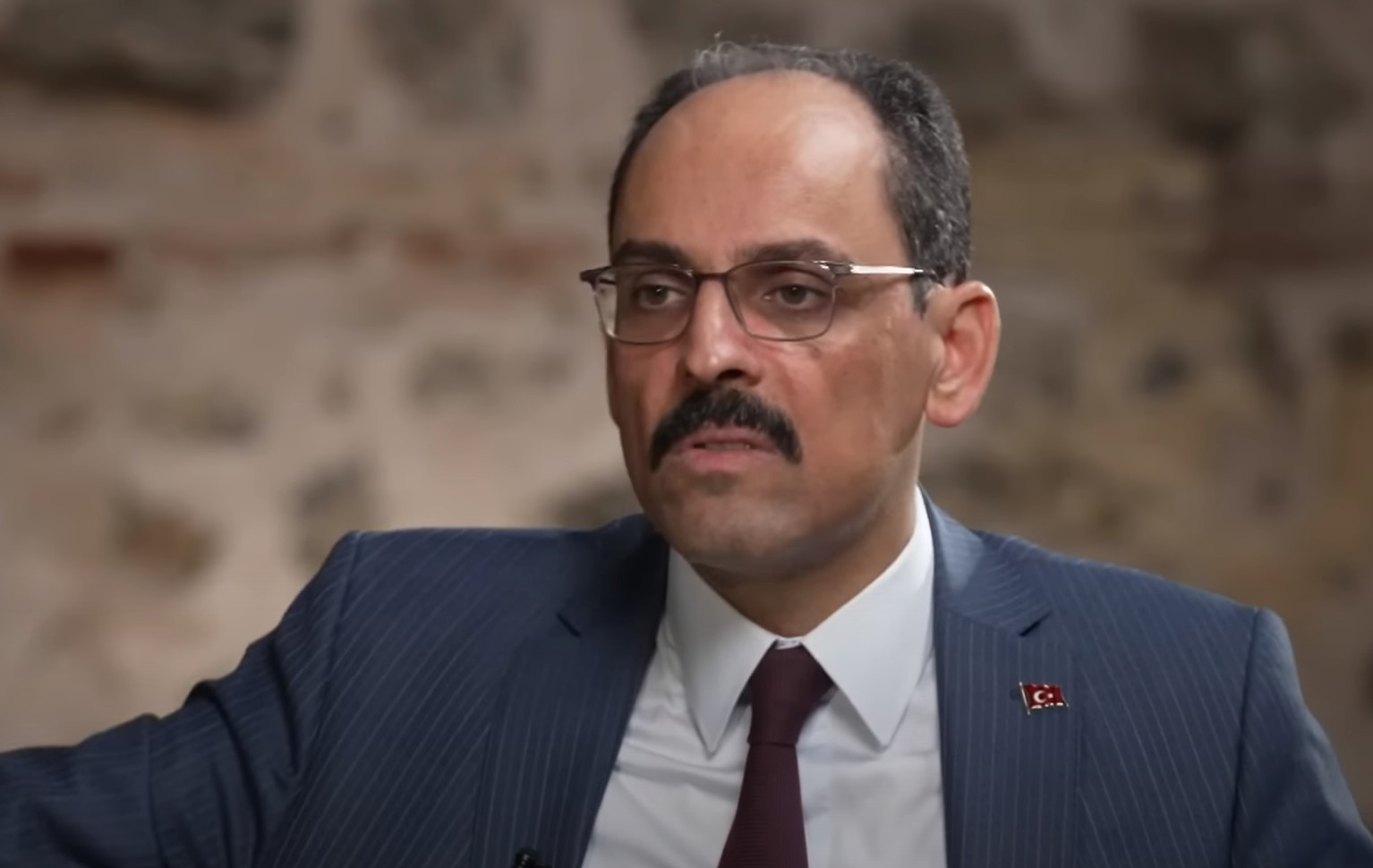Levent Kenez/Stockholm
The 2023 report from Germany’s Hamburg State Office for the Protection of the Constitution (Landesamt für Verfassungsschutz Hamburg ) was released on June 3, 2024, shedding light on the activities of various intelligence agencies and illegal groups in Germany. According to the report, the Turkish National Intelligence Organization (MİT) has been actively operating within German borders, with a focus on surveillance of political dissidents, Kurdish groups and leftist organizations.
The annual report provides information on the state of internal security in Hamburg and usually covers terrorism, extremism, organized crime and similar issues.
The report claims that MİT, under the leadership of İbrahim Kalın, a close confidant of Turkish President Recep Tayyip Erdogan, uses its extensive executive and enforcement powers to gather information and monitor activities perceived as opposing the Turkish government. Highlights from the report include MİT’s surveillance of the outlawed Kurdistan Workers’ Party (PKK), the Revolutionary People’s Liberation Party-Front (DHKP-C) and the Communist Party of Turkey/Marxist Leninist (TKP/ML), all of which are considered by Turkish authorities to be threats to national security.
Furthermore, the report also reveals MİT’s surveillance of the Gülen movement, a group critical of Erdogan, across Germany. In addition to its intelligence-gathering activities, the report details the involvement of Turkish government officials, including ruling Justice and Development Party (AKP) deputies, in influencing political discourse within the Turkish diaspora in Germany. Reports of AKP deputies advocating for the eradication of Erdogan’s opponents worldwide, including members of the Gülen movement, have raised concerns about foreign influence in German politics.
During a speech in Neuss on January 13, 2023, former AKP MP Mustafa Açıkgöz stated, referring to members of the Gülen movement, “Just as we do not grant them the right to live in Turkey, we will not grant it to them in Germany, either.”

The report also raises questions about the role of Turkish citizens living in Germany who are loyal to the Turkish government and reportedly recruited by MİT for information-gathering purposes. These individuals are said to spy on fellow Turkish citizens to gather information and are encouraged to denounce individuals critical of the Turkish government.
On November 3 Nordic Monitor published the story of a Turkish man based in Berlin who volunteered to become an informant for MİT, claiming that he had successfully infiltrated the Gülen movement and was prepared to share information with Turkish authorities.
According to classified documents included with official communications of the Turkish government and acquired by Nordic Monitor, the individual who remained anonymous transmitted several messages to Turkish authorities, including the consulate general in Berlin and MİT headquarters, with the clear intention of aiding Turkish spies in the abduction of Erdogan’s critics.
Furthermore, the report warns of the potential for restrictive measures by Turkish authorities, including MİT, against people traveling to or from Turkey. Instances of individuals being accused of disseminating terrorist propaganda or facing consequences for expressing criticism of the Turkish government on social media have been documented during passport control at airports.
The report also highlights the far-right, nationalist Gray Wolf network (Bozkurtlar, also known as Ülkücüler), the youth organization of Erdogan ally the Nationalist Movement Party (MHP), underscoring the close collaboration between the Ülkücüler and the AKP in Germany. According to the report, Ülkücüler partners with AKP-affiliated figures from the Union of International Democrats (UID), an organization that functions as a foreign interest group on behalf of the Erdogan government abroad, and mosque communities represented by the Turkish-Islamic Union for Religious Affairs (DİTİB) and the IGMG (Islamic Community Milli Görüs).

The report claims that the handling of national issues in Turkey has given impetus to extreme right-wing movements, which are now rallying for a “European Turkishness” in Germany. Over time, numerous highly nationalist umbrella groups and organizations have emerged, attempting to influence the Turkish community. Their ideology is also disseminated through lobbying organizations like the UID as well as social media, the report says.
This is not the first report to mention Germany’s concern about Turkish intelligence and the activities of radical groups. In an August 2023 report released by the German federal government, Turkey was identified as the sole NATO ally engaging in espionage and intelligence activities on German soil. These actions were deemed a threat to Germany’s constitutional order and social cohesion, raising significant concerns about national security and the bilateral relationship between the two countries.
The 380-page report, issued the previous month by the Federal Ministry of the Interior and Community (Bundesministerium des Innern und für Heimat, BMI) and presented by Interior Minister Nacy Faeser, listed Turkey along with Russia, China, North Korea and Iran as the main actors in espionage targeting Germany, cyber attacks directed by intelligence services and influence operations.
Turkey and other countries were said to exploit their intelligence services to gather information, exert influence, monitor critics or pursue other interests, largely due to Germany’s prominent role in the EU, NATO and various international organizations.
According to the assessment by the German interior ministry, Turkish intelligence services and security authorities are integral parts of the Turkish government apparatus, playing a crucial role in implementing policy decisions made by Erdogan.
The report further pointed out that in Germany, Turkish diplomatic missions also conduct surveillance on organizations and individuals perceived to oppose the Turkish government.

Documents obtained by Nordic Monitor in 2018 revealed that the Turkish Embassy in Berlin had been profiling Turkish citizens who opposed Erdogan, subsequently transmitting their private information to Ankara. The Ministry of Foreign Affairs then shared this information with judicial authorities, leading to unfounded terrorism investigations into these individuals despite the absence of concrete evidence.
Text of the Hamburg State Office for the Protection of the Constitution’s intelligence report:












